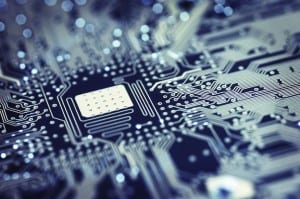I’ve been thinking about whether i should just copy and past the feedback I got or if it was better to only put some parts in this post. I’ve come to the conclusion that I’ll “just” copy and past it, but not because it’s easier (because it is) but because this way I’ll have ALL the feedback here. So if I need to access it and can’t find it in my emails, I won’t be missing parts.
Hi Francisca,
I’ve now read through your Independent Study proposal – here are a few thoughts. This is great stuff, and looks to have the makings of an exciting dissertation.
You make a distinction between ‘control’ of technology and ‘mutation’ through exposure – this could be developed in interesting ways, particularly if part of a broader consideration of the collapse of various dualisms central to humanist thought, such as self/other, mind/body, free will/determinism, organic/technological, culture/nature, human/animal, one/many, etc.
Haraway’s work is a good way into this, though it might be useful to find a contemporary source that responds to or develops specific points of Haraway’s argument which relate to biotechnology.
You could also consider her recent writings and talks on the subject of the Anthropocene. In a sentence, the Anthropocene is a term geologists are now using to describe the idea that we have now entered the ‘age of man’, an age that can be measured geologically, namely by the scarring of the earth. There are broader implications related to such an idea, particularly concerning the temporality of such an age – if the age of the human is simply a brief moment in the deep time of the planet, then the human is clearly not at the centre of all things, as we have previously assumed. This is nicely outlined in a piece by Claire Colebrook (a key writer on the posthuman) in the context of memory: http://thememorynetwork.net/the-anthropocene-and-the-archive/
The Braidotti book you mention should certainly be a key source. There are a couple of recent books you could add to it – Cary Wolfe’s What Is Posthumanism?, and a collection called The Nonhuman Turn edited by Richard Grusin. I attach pdfs of the introductions to both books.
Ray Kurzweill’s rapturous writings could certainly play a key role in your study if you wish, but it is not a theoretical text so you would need to use it in a different way to the other material. The Latour text might be a bit heavy going – perhaps it would be better to look for texts that directly apply Latour’s idea that ‘we have never been modern’ to media technologies.
I would suggest avoiding the Curran text you cite. He is rather caught up in the old representationalist model of media theory, and you are doing something much more interesting here. Perhaps you could substitute this text with some of the material on accelerationism I mentioned? Deleuze and Guattari, key figures associated with discourses of acceleration, were inspired by Nietzsche’s call to ‘accelerate the process’. It might be interesting to explore links between the somewhat post-political acceleration of the ‘Extropians’ and the political discourses of accelerationism. As a taster, I attach part of the introduction from The Accelerationist Reader.
The Thacker essay you mention is derived from a longer book – Biomedia, published in 2004. Here’s a blurb on the book, I have a copy of this if you’d like to read it: https://www.upress.umn.edu/book-division/books/biomedia
Finally, I would recommend going back to a text we used for Society, Aesthetics and Digital Media last year: Life After New Media by Sarah Kember and Joanna Zylinska. Specifically, take a look at the passages in which they refer to Bernard Stiegler’s notion of ‘originary technicity’. This is in the library, but let me know if you can’t get hold of a copy.
In terms of focusing your attention as you progress, I think your proposal to examine various ‘fictive visions’ should provide you with a structure. I would recommend that you avoid any concern with how ‘realistic’ these might be, and instead consider how such visions are symptomatic of a crisis in traditional humanism, and/or serve to express the emergence of such debates in society more generally. In this sense, any references to policy documents, regulation, etc., should be made in response or as an aside to such visions. So, I would recommend that you begin compiling some potential fictive visions of the posthuman, and then over the coming weeks we can reduce this list to two or three key examples that can be examined in detail. Off the top of my head, the film Ex Machina, and the Channel 4 series Humans (broadcast this summer) might be interesting, though there are plenty of other less obvious ways you could approach this. Perhaps your selection of fictive visions (the key examples around which you might structure your essay) could individually focus on specific realms of crisis, e.g. crisis of the human body, crisis of human consciousness, etc.
See you in week 3,
Rob



